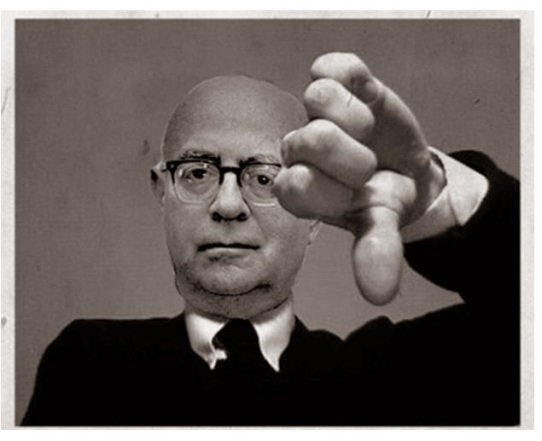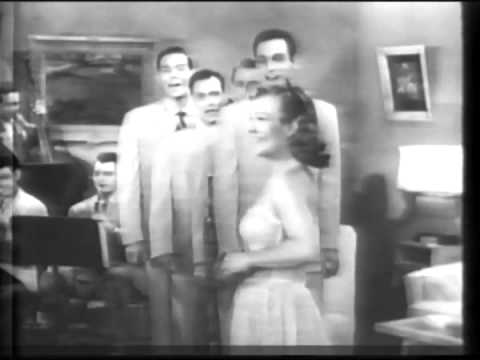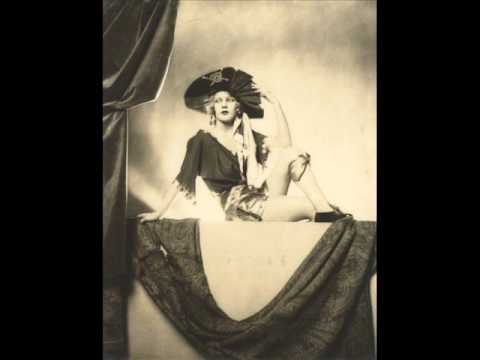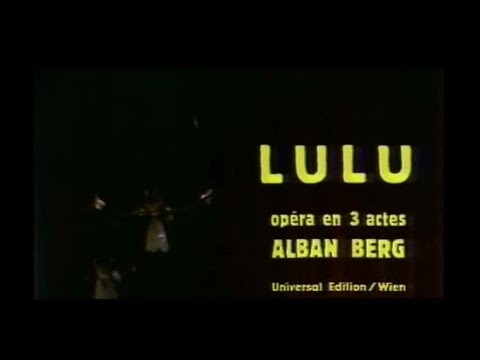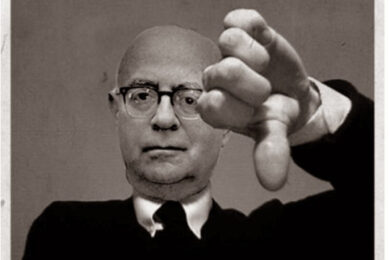Music isn’t just a source of pleasure but can be an elegant tool for ensuring the masses desire their own domination. So, at least argued the Frankfurt School, that bunch of mostly Jewish German Marxists who, during the 20th century, developed the critical idea of what they called the Culture Industry. For them, Hollywood was part of an industry that helped keep capitalism in place, and so was popular music, using repetition, mawkish evocations of romance or childhood memories, to keep us subdued in a profit-making system that increasingly deprives individual humans of anything worth the name personality. They were upbeat guys. Here are 10 tracks that may help you understand their perspective.
Bonnie Baker – ‘Especially For You’
"Especially for you that’s all I live for, especially for you that’s all I’m here for, especially for you the birds are singing, especially for you the bells are ringing," sang fresh-faced 20-year-old Bonnie Baker in this slow swing blues number accompanied by Orrin Tucker’s orchestra. The leading Frankfurt School thinker about music, Theodor Adorno, hated it. In his 1930s essay Commodity Music Analysed, Adorno seized on ‘Especially For You’ as typifying the lie at the heart of consumer culture, and exposed its deployment of romantic tropes to sell product. "[T]he truth is that the the person for whom something is specially produced is actually no more than a customer and his particular needs are no more than the interchangeable representatives of universal needs themselves generated by the product."
He added: "The sheer idiocy of a mass product created especially for you assumes the character of a ghastly necessity. Individual needs have been so ruthlessly eliminated from the product that they have to be invoked like magic formulae…" Heaven knows what he’d have made of Kylie Minogue’s song of the same name had he lived long enough to bask in the ex-Neighbours‘ star’s perky oeuvre.
Bertolt Brecht and Kurt Weill (sung by Lotte Lenya) – ‘The Alabama Song’
In 1930, Adorno reviewed a new opera by Brecht and Weill called Mahoganny. In it, he wrote approvingly, "the present system, with its mores, rights and order, is exposed as anarchy; we ourselves live in Mahoganny, where everything is permitted save one thing: having no money". The opera was particularly topical since it came when Germany was on the brink of bankruptcy and Hitler poised to exploit the Weimar Republic’s economic meltdown.
Brecht and Weill staged their opera in a fictitious city in the American West called Mahogany, an allegory of how we live under monopoly capitalism. They presented it as a modern Sodom and Gomorrah, destroyed by its worship of graft and fraud, whisky and dollars. Mahogany was, for Brecht and Weill, and for Adorno, the realisation of the barbarism beneath capitalism’s civilisation. In ‘Alabama Song’, Mahogany’s pleasure seekers are trapped on a wheel of Ixion on which one desire leads to another in a degrading, neurotic repetition echoed by Brecht’s lyrical repetitions:
"Oh, show us the way to the next whiskey bar/
Oh don’t ask why!/Oh don’t ask why/
For we must find the next whiskey bar/
For if we don’t find the next whiskey bar,/
I tell you we must die! /I tell you we must die.
I tell you. I tell you. I tell you we must die!"
In Mahogany, every commodity is substitutable for another – whiskey, dollars, little girls – the fulfilment of the logic of Marx’s exchange principle. No wonder David Bowie and The Doors covered ‘The Alabama Song’: its critique of consumer capitalism, that so captivated Adorno, has proved of enduring relevance.
Alban Berg – ‘Lulu’ (1979 production directed by Patrice Chéreau and conducted by Pierre Boulez)
Adorno studied composition with the great modernist composer Berg in Vienna in the 1920s and, after the composer’s death in 1935, eulogised his master’s work whenever posible. He particularly loved this opera, based on Frank Wedekind’s drama about a femme fatale who passes from lover to lover, husband to husband and eventually ends up destitute in London’s East End. Lulu, he wrote, " reveals the extent of its quality the longer and more deeply one immerses oneself in it," he wrote.
Using the modernist 12-tone techniques Berg had learned from his master Arnold Schoenberg, the music rejected expressionist techniques and side-stepped the abyss of commodity music he loathed, and instead offered a fictive musical space where the cruelties of reality could be exposed and overcome. He wrote "This music, as a radiant, multi-hued jewel for the beloved body, seeks to restore human dignity to a banished, heretical yearning. Every bar of music intends salvation for the banished, for the symbol of sexual being, for a soul that in the hereafter rubs the sleep from its eyes, to quote from the most irresistible bars of the opera. … Berg’s music strikes a nerve where civilised man does not joke, and precisely this point becomes for him a refuge of the humane."
For the Frankfurt School, this refuge was precisely the point of art (as opposed to the commodified products of the culture industry) under advanced capitalism. Herbert Marcuse, wrote in his 1964 book One-Dimensional Man that what he unapologetically called "higher culture" existed as a kind of unofficial opposition to the existing order. He wrote: "The two antagonistic spheres of society have always coexisted; the higher culture has always been accommodating while the reality was rarely disturbed by its ideals and its truth". Berg’s Lulu was, for Adorno and others in the Frankfurt School, just such a rebuke and refuge.
The Beatles – ‘She Loves You’
There is a great online meme, suggesting that Theodor Adorno was the brains behind the Beatles. Picture the scene. It’s 1963 and Lennon and McCartney are struggling struggle with the composition of ‘She Loves You’. "She loves you," says Lennon. "What comes next?" "Yeah, yeah, yeah?" chips in Adorno. "Brilliant, Teddie, just brilliant," says McCartney. And , as a result, the song becomes a transatlantic smash, the Beatles’ all-time best-selling single. True story.
In fact, of course, Adorno, as you might expected, despised the mop-topped Scouse beat combo and everything they stood for. "What can be urged against the Beatles," he said during a discussion in the magazine Akzente in 1965, " is simply that what these people have to offer is something that is retarded in terms of its own objective content. It can be shown that the means of expression that are employed and preserved here are in reality no more than traditional techniques in a degraded form."
Adorno was also scathing about 1960s protest music, arguing in this interview that it was corrupted by its association with commodified popular musical tropes as he explains. The high mindedness of Adorno’s critique loses its potency when you realise it was expressed by a philosopher who, during the 1960s, used to enjoy watching the safari drama Daktari, with its hero Clarence, the cross-eyed lion.
Theodor Adorno – ‘Piano piece’ (1921)
Adorno was raised in a musical family. His mother Maria Cavelli-Adorno della Piana, in particular, was an eminent opera singer. He excelled on the piano and thought, for a while of becoming a composer rather than a philosopher – hence his studies in Vienna with Alban Berg. In this early piece, one can detect the influence of Arnold Schoenberg’s 12 note technique as well as a developing austere modernist sensibility pitted against expressionist art and against the commodity music he derided ion his critical writings
In the 1930s, he also also started an opera called The Treasure Of Indian Joe, drawn from Mark Twain’s novel The Adventures Of Tom Sawyer. Perhaps his ambition to write that opera didn’t survive his friend Walter Benjamin’s withering critique. When Adorno sent along a scenario Benjamin wrote dismissively, "I believe I can imagine what you were attempting here".
Beethoven Piano Sonata No.32 Op.111 (performed by Alfred Breendel)
One afternoon in 1943 Adorno played Beethoven’s last piano sonata, Opus 111, for the great German novelist Thomas Mann at the latter’s home in San Remo Drive in Pacific Palisades, Los Angeles. Both men were exiles from Germany thanks to the rise of Hitler, part of a cultured German community later nicknamed Weimar on the Pacific. At the time, Mann was struggling with a novel called Doctor Faustus Doctor Faustus: The Life of the German Composer Adrian Leverkühn As Told By a Friend, and he sought out Adorno to help him with at the descriptions of music and the composing process. "Would you," Mann wrote to Adorno, "be willing to think through with me how the work – I mean Leverkühn’s work – might look; how you would do it if you were in league with the devil?" That Faustian pact was irresistibly tempting to Adorno – even if it seemed to involve Mann as Mephistopheles draining Adorno of his musical expertise, just as Mann’s diabolical hero Leverkühn drained his teacher of knowledge – and then claiming all the credit.
After he played the late sonata, Adorno lectured Mann on its significance. This prompted the Nobel-winning novelist to rewrite chapter eight of Doctor Faustus, about a lecture on the composer’s late works by Leverkühn’s music teacher Wendell Kretzchmar. It’s hard to read this without imagining that Mann has put Adorno’s words in Kretzchmar’s mouth, hard not to read such superb passages as the following as Mann’s notes from a lost lecture by Adorno: "Beethoven’s art had outgrown itself, risen out of the habitable regions of tradition, even before the startled gaze of of human eyes, into spheres of the entirely and utterly and nothing-but personal – an ego painfully isolated in the absolute, isolated too from sense by the loss of his hearing; lonely prince of a realm of spirits, from whom now only a chilling breath issued to terrify his most willing contemporaries"
Or again: "Where greatness and death meet, there arises a sovereign objectivity amenable to convention and leaving arrogant subjectivity behind, because the merely personal… supersedes itself again; it enters collective and mythical ghostlike and gloriously."
When Doctor Faustus was published in 1947, Mann basked in wonderful reviews. Perhaps, though, at least some of the credit for the novel’s triumph was due to Adorno.
During his collaboration with Mann on the novel, Adorno even wrote some musical sketches for pieces that the fictional Leverkühn might have written – finally finding expression for an impulse to compose music that had long been stymied.
Wagner’s ‘Ring Cycle Leitmotifs’ (performed by the Metropolitan Opera Orchestra)
In 1936, exiled in Oxford, Adorno wrote his eviscerating book In Search Of Wagner. It wasn’t just because Wagner was an anti-Semite, still less that he was Hitler’s favourite composer, that made Adorno so waspish in his critique, but neither probably helped. He is particularly intriguing on Wagner’s use of leitmotifs in the Ring Cycle. For Adorno, Wagner is a proto-ad man, the Don Draper of opera. "Among the functions of the leitmotif can be found, alongside the aesthetic one, a commodity-function: rather like that of an advertisement : anticipating the universal practice of mass culture later on, the music is designed to be remembered, it is intended for the forgetful."
Charles Mingus – ‘Wednesday Night Prayer Meeting’
Adorno had a problem with jazz, though when he wrote his most caustic denunciations of it in the 1930s, he had chiefly heard it played by white German dance bands, which is – with all due respect to white German dance bands – no way to go about it. I choose this song by Charles Mingus, because I love it, and because it surely shows Adorno should have listened harder.
Unfortunately, he heard jazz merely as a perverted kind of commodity music. The black American roots of jazz served, he thought, as factors that made jazz more appealing to its privileged, white European audiences, he wrote in his notorious 1936 essay On Jazz. "[T]he skin of the Negro as well as the silver of the saxophone was a coloristic effect". But he heard
something else: he heard, in so far as jazz was the authentic African-American expression, not so much rebellion against slavery as resentful submission to it.
Jazz, as Adorno understood it, was sado-masochistic. Jazz was suitable for fascism, then, not just because it mobilised military marches, acted through its collective characters as a corrective to "the bourgeois isolation of autonomous art", but also because "its rebellious gestures are accompanied by the tendency to blind obeisance , much like the sado-masochistic type described by analytic psychology". I dare you to hear any of that in this 1960 slab of joy.
Bessie Smith – ‘I Used To Be Your Sweet Mama’
If only Adorno and Marcuse had listened to African-American music as hard and as sympathetically as their most eminent student, the revolutionary African-American activist and feminist thinker Angela Davis. In her 1998 book Blues Legacies And Black Feminism Gertude "Ma" Rainey, Bessie Smith, and Billie Holiday, she wrote of how the blues emerged during the decades following the abolition of slavery, and "gave musical expression to the new social and sexual realities encountered by African Americans as free women and men. The former slaves’ economic status had not undergone a radical transformation -they were no less impoverished than they had been during slavery. It was the status of their personal relationships that was revolutionalised. For the first time in the history of the African presence in North America, masses of black women and men were in a position to make autonomous decisions regarding the sexual partnerships into which they entered. Sexuality thus was one of the most tangible domains in which emancipation was acted upon and through which its meanings were expressed."
You can hear what Angela Davis means if you listen to Bessie Smith in this song, when she sings bitterly:
"You’ve had your chance and proved unfaithful
So now I’m gonna be real mean and hateful
I used to be your sweet mama, sweet papa
But now I’m just as sour as can be."
Such music was hardly part of the affirmative culture that Adorno and Marcuse indicted. Rather, as Davis argues, singers such as Gertrude "Ma" Rainey, Bessie Smith, and Billie Holiday ”provided cultural space for community-building among working-class black women… in which the coercions of bourgeois notions of sexual purity and ‘true womanhood’ were absent.” For Angela Davis, the blues is a semi-autonomous zone or other dimension where utopias could be imagined in opposition to the dominant cultures – a response to, rather than confirmation of the affirmative culture her teacher Herbert Marcuse indicted.
Sleaford Mods – ‘Under The Plastic And NCT’
The Nottingham-based duo are keen readers of Frankfurt School, particularly Herbert Marcuse’s One-Dimensional Man and their songs often rage sarcastically at the impoverishment of experience under late capitalism and at Sisyphean consumption masquerading as freedom. In this 2014 song, for instance, Jason Williamson bawls at some nameless victim of consumerism: "Three words: Cage, Wheel, Hamster/Here’s a bit of cheese – nibble the bastard!" But there’s more in the song, a hopeful vision straight from the pages of Adorno or Marcuse: "Under the general weight of it all," sings Williamson, " Exist impossible visions of love." The "impossible" in that line is pure Frankfurt School critical theory: Sleaford Mods, like Adorno and Marcuse, realise the necessity of overcoming the present capitalist system and, at the same time, its apparent impossibility.
Stuart Jeffries’ new book Grand Hotel Abyss – The Lives Of The Frankfurt School is out now via Verso, For more information go here

